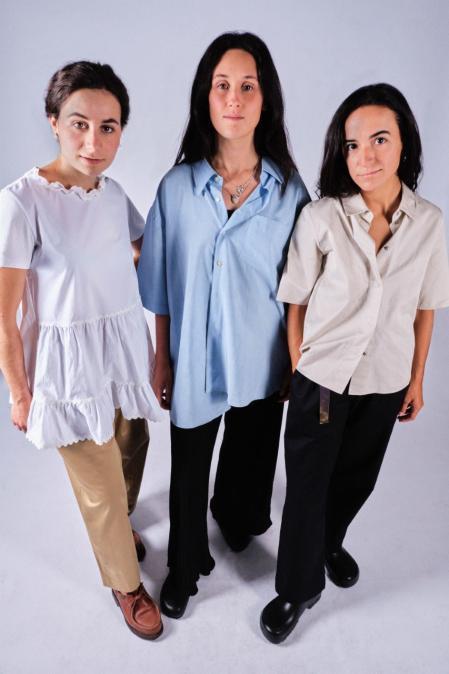Bastida, when each seam has a meaning
Trends
The designers Marta Soldevilla, Natalia Barros and Nagore Vitallé are behind this project in which the function defines the shape of each of the uniforms that create
The social sausages that recover the Gall del Penedès
Fairy Macià
Marta Soldevilla, Natalia Barros and Nagore Vitallé are the creators of this brand of uniforms that was born during the pandemic and that is beginning to gain a foothold in the hospitality sector, not just limited to the restaurant.

They decided on the name alluding to that construction, the bastide, which allows you to reach areas that are difficult to access. "A construction that greatly facilitates work, and that is the main objective of our garments," says Marta Soldevilla, who adds that they chose a feminine name because another of their brand's goals is to empower women, creating patterns that suits her and not just unisex clothing.
We worked a lot on the conceptual and creative part. We immersed ourselves in the universe of each business and its concept
Marta SoldevillaDesignerThey began designing custom-made garments and made their debut with the Formaje cheese factory, followed by the Marqués de Murrieta winery and the Jazmino's restaurant, among others. "We work a lot on the conceptual and creative part. We soak up the universe of each business and its concept and we look for how to communicate to the client through clothing," says Soldevilla.
Formaje commissioned them a uniform that reflected the artisan process of their cheeses. They studied how the cheese masters dressed in the past and made the garments with natural fibers. "The apron has a bib that you can remove when you take large cheeses, and it can be cleaned separately," says the designer. "And since the store had to maintain a temperature of 15ºC, we added a sleeveless collar made of transhumant wool to the uniform so that the workers would not get cold." They also devised an organic cotton robe and jacket and matched the colors of the clothes with those of the store.
Although aesthetics are important to them, Marta Soldevilla insists that function is what defines the shape of their uniforms, and not the other way around. "All the seams or pockets are justified. There will be nothing that has a purely ornamental purpose," she clarifies.
But they explain that they don't just make uniforms tailored to the client. This month they will put on sale a line of clothing for cooks and chefs and another of basics. First they will do a pre-sale of the new products through their website, and in two weeks they will open the online store for good. The idea is to gradually offer other collections, such as one for loungewear and another for artisan workshops.
To make all their garments, they work in their own workshops and purchase raw materials from local suppliers. They mainly use cotton, linen and, for the pieces that require it, recycled polyester. "The downside of this material is that when you wash it, it generates microplastics, which is why we will be selling special filter bags for washing polyester on the web. In this way, the plastics will not end up in the pipes," says the designer, who insists that sustainability is very important to his brand.
For the same reason, the labeling of all its garments indicates how to care for and wash them in great detail and through its own code of symbols. In short, they are convinced that there is nothing more sustainable than buying long-lasting clothing and avoiding renewing it every year.










Related Articles